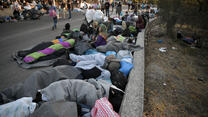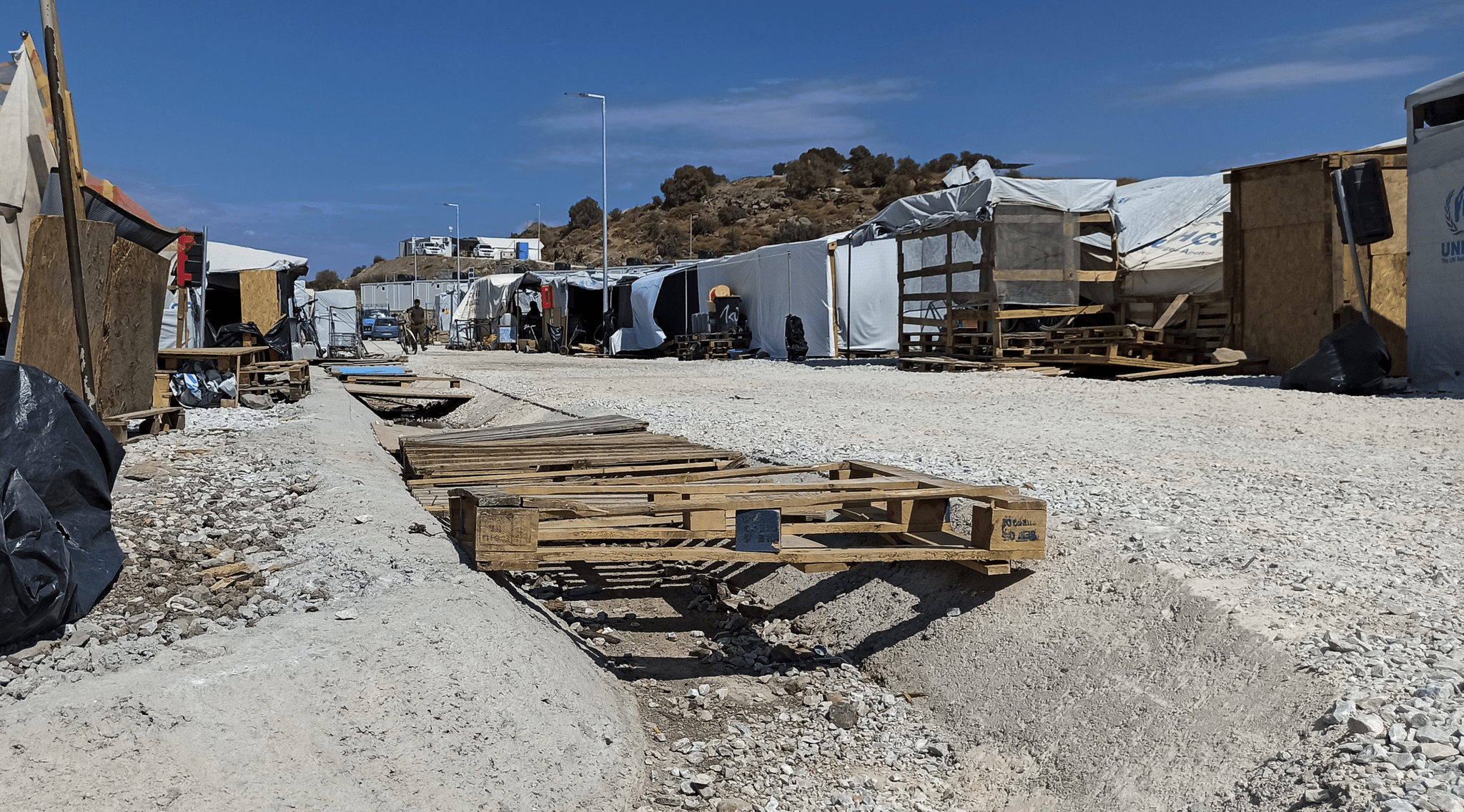
One year ago, on 23 September 2020, the European Commission presented its New Pact on Migration and Asylum - a complex package of reforms intended to mark “a fresh start” for EU asylum and migration policy.
The IRC had called for the Pact to protect people on the move by delivering a more fair and humane policy framework. However, when the Pact was published it became clear that its proposals fell short of realising this ambition. Instead, they risk entrenching rather than reversing the worst aspects of existing asylum policies across Europe.
Since the Pact was presented in September 2020, negotiations have remained largely deadlocked and progress has still not been reached on vital issues, such as the establishment of a fair system for EU states to share responsibility for new arrivals at EU borders.
One year on, the urgency of a fair and humane migration and asylum policy in Europe has only become clearer.
- At the same time as global humanitarian needs are escalating, pathways to safety or long-term solutions for refugees are increasingly limited – including resettlement, returning home, or integration into local communities. As UNHCR noted this summer, this vast and growing protection gap is being fuelled by COVID-19, ongoing conflicts, and increasingly protracted displacement. The ongoing humanitarian crisis in Afghanistan as a case in point.
- The COVID-19 pandemic dealt a huge blow to refugee resettlement worldwide, by which refugees in situations of particular vulnerability can be safely transferred to safe countries – such as the EU – with a pathway to permanent residence. Now, more than 18 months since COVID-related travel restrictions first kicked in, key resettlement players such as the US and Canada are reinvigorating, investing into, and significantly expanding their programmes, to catch up on lost time. European states, by contrast, risk falling behind. Resettlement to the EU has still not resumed its earlier pace, and most countries have not yet made commitments for 2022 or set a specific target of places for Afghan refugees.
- In Europe, a growing number of states are failing to uphold the right to asylum, even while spontaneous arrivals to Europe last year were at the lowest level since 2013. The number of dangerous and illegal pushbacks reported across the EU’s territory has risen sharply, while perpetrators are still not being properly held to account. Less visibly, governments across Europe have taken steps to weaken access to a fair and full asylum procedure. Meanwhile, the externalisation of the EU’s asylum responsibilities through (often informal) deals with states like Turkey or Libya, with immense costs for human rights, seems only to become more entrenched. So far this year, a record number of over 23,000 people – including 1,000 children – have been intercepted by the Libyan Coast Guard while attempting to reach Europe and taken back to Libya, where they face detention, exploitation and abuse.
- Lastly, conditions on the Greek islands showcase Europe’s continued failures to manage migration humanely and with respect for people’s dignity. One year on from the tragic fires in the Moria camp, 96% of the refugees supported by the IRC mental health programmes on Lesvos experience symptoms of depression. Uncertainty about their futures, undignified shelter in detention-like conditions, and a failure to cater to specific needs and vulnerabilities, among other factors, continue to have devastating impacts on people’s mental health, while preventing their integration and contributions into Greek society.
If the EU is to have a fair and effective asylum system, the priority for EU institutions and member states must be to address the worrying backsliding in asylum policies or access to safe pathways to Europe. As negotiations on the New Pact on Migration and Asylum progress, there are some key lessons that the European Parliament, the Council, and the European Commission can draw to reverse this trend and put the EU’s values at the heart of its migration and asylum policies.
The IRC has five key priorities for negotiations on the New Pact:
1. Ensure humane and effective reception systems in Europe, which respect people’s dignity and protect their mental health.
As the situation on the Greek islands and elsewhere has starkly illustrated, hosting asylum seekers in processing centres and camps for long periods of time and in undignified living conditions have dire mental health consequences. One year on from the tragic fires in the Moria camp, over 3,000 people remain trapped in the Mavrovouni camp, with insufficient lighting, electricity, medical care, shelter, or protection from the cold or flooding in the winter.
These striking failures to provide people with adequate reception are not only vastly detrimental to their health, including mental health. They also create barriers to refugees’ interaction and coexistence with local communities and their eventual contributions to European societies, counter to the spirit of the EU’s recent Action Plan on Integration and Inclusion, while undermining their ability to effectively exercise their right to asylum. EU policymakers have rightly recognised the failure of this approach, pledging last September that there will be “no more Morias” in Europe.
Yet, despite these commitments, the proposals of the New Pact risk replicating this model across other EU border states, notably through the introduction of mandatory screening and border procedures during which people may be trapped in undignified, detention-like conditions. Also worryingly, the Pact proposals suggest that people subject to screening or border procedures would not be regarded as having entered the EU territory for their duration, leaving them in a legal grey zone with reduced access to rights. In Samos, a new EU-funded closed reception centre was inaugurated on 18 September, with similar facilities planned for the other islands, and possibly replicated across Europe. While improving basic shelter conditions, the new facilities reinforce the containment focus of accommodation on the Greek islands. The centre amounts to de-facto detention, involves barbed wire and advanced surveillance, isolates people from the local community, and is already exacerbating the fear and uncertainty of asylum seekers on the islands.
We call on EU institutions and member states to:
- Ensure sufficient time and legal safeguards for screening and border procedures in the New Pact. The short deadlines established for these in the Pact (five days and 12 weeks respectively) raise serious questions about the fair individual assessment of protection claims, the right to appeal for those rejected, and the identification of asylum seekers’ age, medical conditions, or specific vulnerabilities. These deadlines may also prove impossible for states to fulfil, leading to recurring bottlenecks in asylum systems and potentially trapping people in unsuitable accommodation for long periods.
- Ensure that the proposals do not lead to expanded detention and detention-like conditions, and that EU reception standards continue to apply for the duration of screening and border procedures. The Pact should work towards ending migration-related detention, ensure that states dedicate sufficient resources to appropriate non-custodial solutions, and that they prioritise humane, safe, and dignified accommodation for all asylum seekers in line with the Reception Conditions Directive.
- Strengthen safeguards in relation to situations of crisis, where the above challenges become heightened. In these cases, the vast majority of asylum applicants would be channelled to an accelerated border procedure, and detention could be prolonged to over 50 weeks in total for people whose claims are rejected, raising significant fundamental rights and practical concerns.
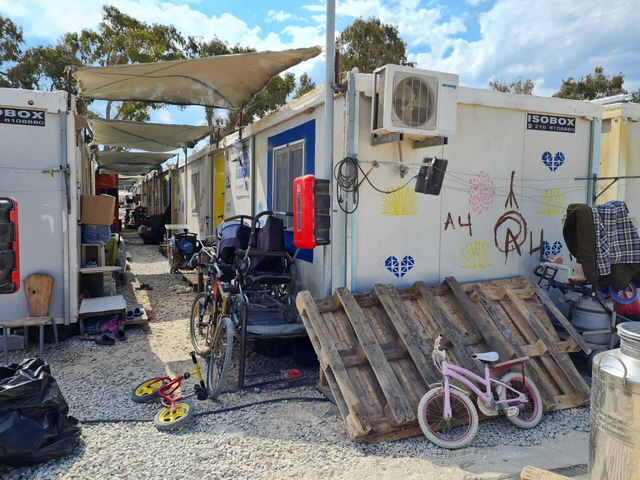
2. Establish a fair and sustainable system to share responsibility for all people seeking international protection in Europe, centred on relocations.
In a Union that takes pride in solidarity as a founding value, geography alone should not determine responsibility for processing new arrivals. The current Dublin III Regulation continues to place the predominant responsibility for examining an asylum application with countries of first arrival. This places EU border states – such as Greece, Spain and Italy – under considerable pressure, creating mounting frustration, and undermining their willingness and capacity to welcome people in need of protection. So long as a concrete and predictable solidarity mechanism is not in place, it will remain a challenge to ensure EU border states’ compliance with EU asylum and reception legislation, and to foster the integration of asylum seekers and refugees within their borders.
The New Pact proposals stop short of providing such a system. They provide only limited mandatory solidarity mechanisms (applying only in times of ‘migratory pressure’ or disembarkation after a search and rescue mission), and introduce several elements of flexibility in how solidarity can be expressed. For example, the possible kinds of solidarity would also include financial or operational support, or ‘return sponsorships’ – by which states could support returns of people whose asylum applications were rejected as a form of solidarity, including by transferring them to their territory after 8 months.
Given the fact that other proposals impose greater responsibilities on EU border states, such as mandatory screening and border procedures, the primary impact of the New Pact package of proposals may be to increase rather than reduce the responsibilities of countries of first arrival.
We call on EU institutions and member states to:
- Ensure that the final agreement on the New Pact delivers a concrete and predictable solidarity mechanism for countries of first arrival, in the spirit of responsibility-sharing within the Union. This system should be centred on predictable relocations of asylum seekers, as a tested and concrete way of displaying solidarity with asylum seekers and hosting states alike.
- The various ad hoc and voluntary relocation schemes established in the past years from Greece, Italy and Malta are greatly welcome. These initiatives are proof of European societies’ readiness to welcome and that coordinated action and political will can truly transform the lives of people. EU states and institutions should learn the lessons of these schemes and seek to transform them into sustainable solutions, paving the way for a permanent, structural, and predictable relocation system. This should involve greater EU guidance to member states, especially for the relocation of unaccompanied children, and the establishment of EU and national-level Relocation Coordinators.
- The return sponsorship concept specifically also raises serious questions over its compliance with fundamental rights. These include the treatment guarantees in the receiving country, the risk of return to unsafe states, the risk of excessive and repeated detention, as well as the uncertainty and vulnerability it creates for people subject to return sponsorship. If this concept moves forward, meaningful safeguards, monitoring and accountability measures will be critical.
3. Prioritise the establishment of a strengthened independent border monitoring mechanism, to put an end to pushbacks and border abuses across the EU.
While states have a right to control their borders, measures must fully respect fundamental rights and access to asylum for those in need, no matter how they entered the territory. However, serious violations of the right to asylum, including pushbacks, continue to be documented across European borders. These make it critical to establish an independent border monitoring mechanism to investigate allegations of fundamental rights violations at borders, and the Commission’s inclusion of this proposal within the Pact is greatly welcome. However, to be an effective monitoring instrument, it will need to be strengthened.
We call on EU institutions and member states to:
- Expand the geographic and procedural scope of the monitoring mechanism, including to enable it to consider cross-border events. The vast majority of fundamental rights violations, in particular pushbacks, take place outside of official border crossing points or formal procedures.
- The independence and transparency of the mechanism must be guaranteed. The proposal places member states in charge of establishing monitoring mechanisms, whereas in many cases, their authorities are also the ones conducting the abuses. To strengthen its autonomy, the instrument should involve independent organisations, including national human rights institutions, NGOs and international bodies, who must have unrestricted access to border facilities. Independent complaints mechanisms must be established, fully resourced, child-friendly and accessible, so people know they can use them. The Fundamental Rights Agency’s role in developing guidelines must be strengthened.
- Consequences must follow reported violations to ensure accountability, and reporting obligations and periodic reviews must be established.
- States’ obstruction of the mechanism’s work or non-compliance with its recommendations should be sanctioned, including withholding EU funding by linking the mechanism to the application of the EU Charter of Fundamental Rights.
- Lastly, states now developing their border monitoring systems must also fully uphold these criteria and comply with guidelines by UNHCR and human rights bodies, to ensure these are sufficiently resourced, effective, and independent.
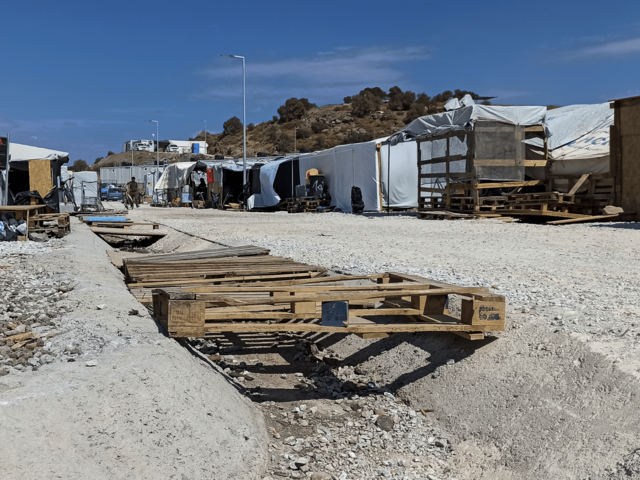
4. Place refugee protection and humanitarian principles at the centre of the EU’s external action, in response to growing humanitarian needs.
In response to rising global humanitarian needs and forced displacement, the EU will need to step up as a humanitarian actor and place protection and global responsibility-sharing at the centre of its partnerships with non-EU countries. While the Pact’s emphasis on strengthened cooperation with countries of origin and transit is welcome, this is regrettably framed from a containment and deterrence angle, with a strong focus on preventing people from reaching safety in Europe.
For example, the Pact seems to point to a continuation of policies to use development aid to stem migration flows to Europe, by making aid conditional on partner countries’ cooperation on returns or border management. Failure to allocate official development aid could hinder essential progress in these countries and divert funds away from the states where it is needed most. Going forward, EU institutions and member states must dedicate a greater focus to ensuring people on the move are safe from harm, including by expanding safe and legal pathways to protection.
We call on EU institutions and member states to:
- Significantly scale up the availability of safe and legal pathways to Europe, including through resettlement, humanitarian admissions, family reunification, labour mobility, and other schemes. As a first step, states must expand the EU’s refugee resettlement programmes, and urgently deliver on pending pledges for 2020-21. This should include a pledge to resettle at least 36,000 refugees in 2022 from across regions in need, as the IRC urged for in July. In addition, as called for by 25 human rights organisations earlier this month, the rapidly escalating protection needs in Afghanistan demand an additional, swift and bespoke EU-wide scheme to resettle Afghan refugees from neighbouring states, on the scale of past emergency resettlement schemes. Strong pledges should be made at the upcoming Resettlement Forum in early October, and the European Commission must ensure that sufficient funding is available to this end.
- Beyond immediate pledges, states should plan for a sustainable increase in resettlement in the coming years, in line with international ambitions to expand access to this durable solution for refugees. To this end, they should invest into adequate reception capacity, facilitate multi-year funding, and advance on negotiations for a Union Resettlement Framework.
- EU states and institutions must reassess the ongoing trend of externalisation of asylum responsibilities to third countries. Restrictive political agreements should be reviewed, such the EU-Turkey Statement, which has resulted in overcrowding and immense suffering on the Greek islands. Cooperation with the Libyan Coast Guard, too, must be urgently reassessed. Instead, the EU must invest into an EU funded and run Search and Rescue mission, including naval assets, to save lives at sea and prevent returns to unsafe states, such as Libya.
- The EU must ensure that its external action is aligned with efforts to advance on the Sustainable Development Goals (SDGs) for populations affected by crisis and conflict. Its policies should be part of integrated strategies that both address immediate acute protection and survival needs, while working with civil society and national ministries to promote long-term resilience, good governance, and strengthened systems – rather than prioritising containing people in their countries or regions.
- Moreover, the EU must evaluate the long-term impact of its external migration policies and agreements with third countries to uphold a ‘do no harm’ approach and to ensure they do not inadvertently increase vulnerabilities, contribute to human rights violations in countries of origin or transit, or backslide on progress on SDGs for displaced populations.
- EU actors should reverse the increasing diversion of aid towards deterring migration, rather than poverty alleviation being the primary objective. This approach must also be reflected in the current response to the Afghanistan situation: any diplomacy and funding in the region must be aimed at maximising protection and access to life-saving assistance for those most in need, rather than preventing people from reaching safety beyond the region.
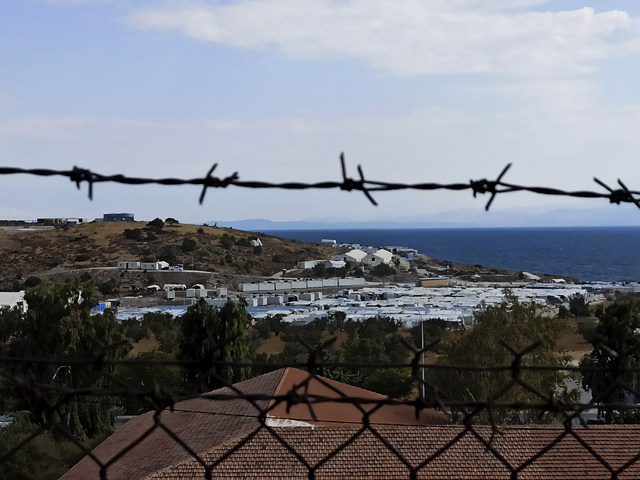
5. In the absence of an agreement on the New Pact on Migration and Asylum, ensure that existing obligations to offer asylum, reception and integration are upheld.
In recent weeks, states and EU officials have pointed to the humanitarian emergency in Afghanistan as proof of the urgency of an agreement on the New Pact. While negotiations should advance, leaders should not use this deadlock as an excuse to neglect existing international and EU law, or to rush through those elements of the New Pact that may recreate the same problems and bottlenecks for EU asylum systems. Likewise, if implementation problems are not effectively addressed now, it may prove equally challenging to uphold the new legislation in practice, once it is agreed.
We call on EU institutions and member states to:
- States must take all possible steps to already improve their asylum and reception systems and strengthen compliance with existing EU standards. Severe implementation gaps must be addressed as a priority, including undignified reception conditions, failures to identify vulnerabilities, and widely divergent asylum recognition rates. The European Commission has a key role to play in monitoring and enforcing the implementation of EU legislation, so that any people arriving in Europe will be treated fairly and humanely.
- European institutions and member states must display an unequivocal commitment to uphold the right to seek asylum throughout the EU, as well as the principle of non-refoulement, which protects people from being sent back to countries where they may face persecution. Any violations of EU or international law must be investigated, condemned and sanctioned, wherever they happen in the EU’s territory and whatever the means of arrival of asylum seekers.
Share our tweet to join our call for the EU to create a New Pact that truly protects:
Today marks a year since @EU_Commission launched its #MigrationEU Pact.
— International Rescue Committee - EU (@RESCUE_EU) September 23, 2021
This was a chance to build a system that truly protects.
Yet, progress remains slow & the EU's new reception centres in Greece are a "step in the wrong direction".
Full statement 👇https://t.co/MCQNcIiWr3
